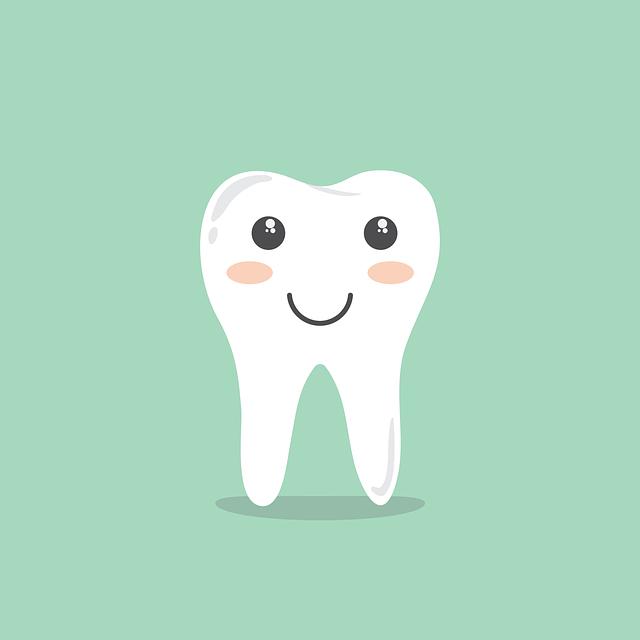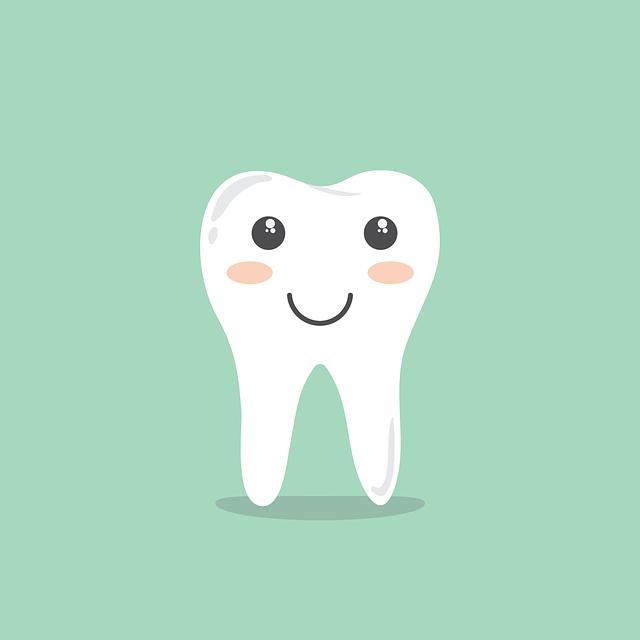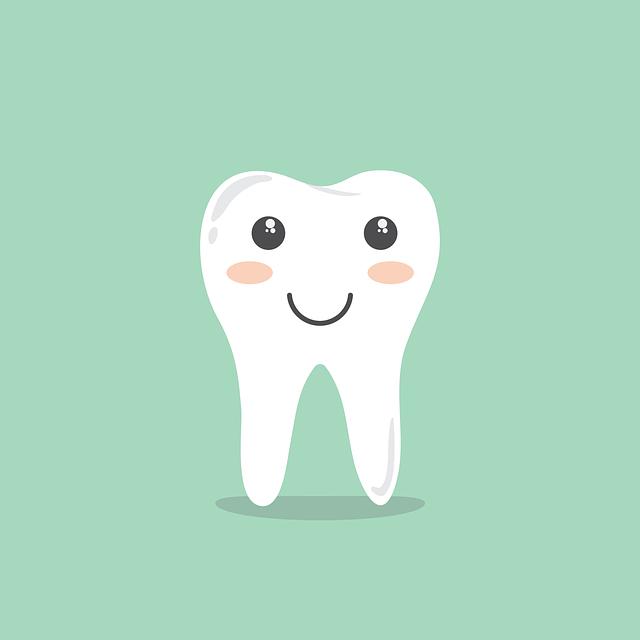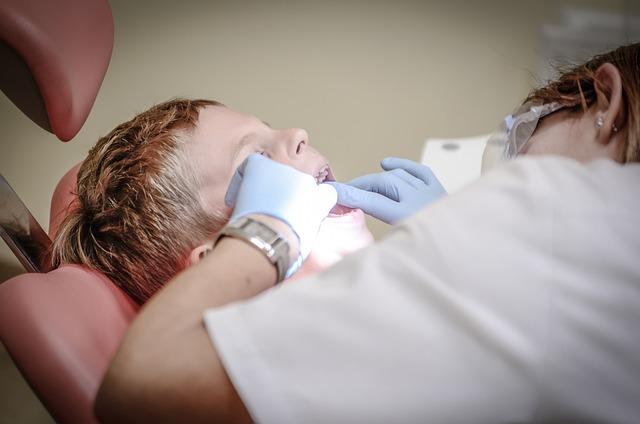Can We Brush Our Teeth with Salt? Dental Dos and Don’ts
Picture this: you wake up in the morning, reach for your toothbrush, and realize you’re out of toothpaste. Panic sets in as you wonder if there’s an alternative solution to keep your teeth sparkling clean. As it turns out, there just might be. Salt, a common household ingredient, has been touted as a potential tooth-cleansing agent. But before you dash to the kitchen pantry, let’s delve into the world of dental dos and don’ts to determine if brushing your teeth with salt is a brilliant idea or a dental disaster waiting to happen. In this article, we will explore the scientific facts and shed light on the age-old question: can we really brush our teeth with salt? So, sit back, relax, and let’s uncover the truth together.
1. Understanding the Benefits and Limitations of Salt as a Dental Care Solution
Salt has long been recognized for its numerous benefits in dental care. It is a natural antiseptic and has antibacterial properties that can help prevent the growth of harmful bacteria in the mouth. Using salt as a dental care solution can provide several advantages, including:
– Promotes oral hygiene: Salt can be used as an effective mouthwash to help eliminate bacteria and clean the mouth. It can also reduce bad breath and improve overall oral hygiene.
– Relieves toothaches: Gargling with warm salt water can help alleviate toothaches by reducing inflammation and killing bacteria in the affected area.
– Reduces gum inflammation: Salt water rinses can be beneficial for individuals with gum inflammation or gingivitis. The salt helps to soothe the gums and reduce swelling.
Despite its benefits, it is important to acknowledge the limitations of salt as a dental care solution. It is not a substitute for regular brushing and flossing, but rather a complementary method to enhance oral hygiene. Salt may not be suitable for everyone, especially those with certain medical conditions or sensitivities. It is always advisable to consult with a dentist or healthcare professional before incorporating salt into your dental care routine.

2. Exploring the Science Behind Brushing Teeth with Salt: What You Need to Know
Brushing teeth with salt has been a popular practice for centuries, but have you ever wondered about the science behind it? Here’s what you need to know:
1. Antibacterial properties: Salt, specifically sodium chloride, has natural antibacterial properties that can help kill bacteria in the mouth. This is because salt creates an inhospitable environment for bacteria to thrive, reducing the risk of dental infections and bad breath.
2. Gentle abrasive action: Salt can act as a gentle abrasive when used in toothpaste or mouthwash. It helps remove plaque and stains from the teeth without causing excessive damage to the enamel. However, it’s important to use salt in moderation and not apply excessive pressure while brushing to avoid enamel erosion.
3. Mineral-rich benefits: Salt is packed with essential minerals like calcium, magnesium, and potassium, which are beneficial for maintaining healthy teeth and gums. These minerals can strengthen tooth enamel, promote gum health, and aid in the remineralization process, reducing the risk of tooth decay.
4. Sensitivity concerns: While salt can provide numerous benefits, individuals with sensitive teeth or gum issues should proceed with caution. The abrasive nature of salt may cause discomfort or exacerbate existing conditions. It’s always best to consult with a dentist before incorporating salt into your oral care routine.
Remember, brushing teeth with salt should not replace regular brushing with fluoride toothpaste and proper oral hygiene practices. However, when used in moderation and under professional guidance, salt can be a valuable addition to your dental care routine.
3. The Dos and Don’ts of Incorporating Salt into Your Oral Hygiene Routine
Incorporating salt into your oral hygiene routine can be a beneficial practice, but it’s important to follow certain guidelines to ensure its effectiveness. Here are some dos and don’ts to keep in mind:
DO:
- Use saltwater rinses: Gargling with warm saltwater can help reduce inflammation, kill bacteria, and promote wound healing. Dissolve half a teaspoon of salt in a cup of warm water and swish it around your mouth for 30 seconds before spitting it out.
- Brush with salt toothpaste: Some toothpaste brands include salt as an active ingredient due to its antibacterial properties. Brushing your teeth with salt toothpaste can help remove plaque and prevent gum disease.
- Apply salt directly to canker sores: Salt has antiseptic and astringent properties, making it effective in treating canker sores. Wet your finger, dip it in table salt, and apply directly to the sore for a few seconds. Rinse your mouth afterward.
DON’T:
- Excessively use salt: While salt can be beneficial, using it excessively can have negative effects. Stick to recommended amounts and frequencies to avoid irritation or damage to your oral tissues.
- Substitute salt for toothpaste: Salt should not replace toothpaste as your primary oral care product. Toothpaste contains fluoride and additional ingredients that are crucial for maintaining good oral health.
- Overuse saltwater rinses: While saltwater rinses can be helpful, using them too frequently can disrupt the natural balance of bacteria in your mouth. Limit saltwater rinses to a few times per week or as recommended by your dentist.

4. Is Salt an Effective Alternative to Toothpaste? Expert Opinions Unveiled
In recent years, there has been a growing interest in natural alternatives to commercial toothpaste. One such alternative that has gained attention is salt. But is salt really an effective substitute for toothpaste? Let’s take a closer look at what experts have to say:
1. Pros of using salt as a toothpaste:
- Antibacterial properties: Salt has natural antibacterial properties that can help reduce the growth of harmful bacteria in the mouth.
- Stimulates saliva production: Salt can stimulate saliva production, which is essential for maintaining oral health and preventing dry mouth.
- Abrasive action: Salt has a slightly abrasive texture that can help remove plaque and stains from the teeth.
2. Cons of using salt as a toothpaste:
- Lack of fluoride: Unlike most toothpaste brands, salt does not contain fluoride, a mineral that plays a crucial role in preventing tooth decay.
- Potential gum irritation: The abrasive nature of salt can cause gum irritation and sensitivity, especially if used excessively or vigorously.
- Insufficient freshness: While salt can help neutralize odors in the mouth, it may not provide the same level of freshness that toothpaste with added flavoring agents can offer.
Ultimately, the decision to use salt as a toothpaste alternative is a personal one. While it may have some benefits, it is important to weigh them against the potential drawbacks. Consulting with a dental professional is always advisable to ensure you are making the best choice for your oral health.

5. How to Safely Brush Your Teeth with Salt: Step-by-Step Guide
Brushing your teeth with salt can be a safe and effective way to maintain oral hygiene. Follow these step-by-step instructions to ensure you’re doing it correctly:
1. Choose the right salt: It’s important to use the right type of salt for brushing your teeth. Opt for a fine-grained salt, such as sea salt or table salt, as they dissolve easily and are less abrasive on your teeth and gums.
2. Mix the salt with water: In a small cup or bowl, mix a teaspoon of salt with a few tablespoons of warm water. Stir until the salt is completely dissolved. This will create a saltwater solution that you can use for brushing.
3. Dip your toothbrush: Dip your toothbrush bristles into the saltwater solution, making sure to fully coat them. The bristles should be moist, but not dripping wet.
4. Brush gently: Using gentle circular motions, brush your teeth and gums with the saltwater solution. Pay extra attention to areas where plaque and tartar tend to build up, such as the gum line and the back of your teeth.
5. Rinse and clean: After brushing for about two minutes, spit out the saltwater solution and thoroughly rinse your mouth with plain water. Make sure to remove any residual salt from your teeth and gums.
Remember, while brushing your teeth with salt can help maintain oral health, it should not replace regular brushing with toothpaste and should be done in moderation. If you experience any discomfort or irritation, discontinue the use of salt for brushing and consult a dentist.
6. Potential Risks and Side Effects of Using Salt as a Toothpaste Substitute
1. Tooth enamel erosion: Using salt as a toothpaste substitute can potentially lead to tooth enamel erosion over time. Salt is abrasive and can wear down the protective layer of enamel on your teeth, making them more vulnerable to decay and sensitivity.
2. Gum irritation: Salt can also cause irritation to the gums, especially if used in excessive amounts or with too much force. This can result in redness, swelling, and discomfort, making it difficult to brush properly and maintain good oral hygiene.
3. Increased tooth sensitivity: Salt’s abrasive nature can also contribute to increased tooth sensitivity. As the enamel wears down, the underlying dentin layer becomes more exposed, leading to heightened sensitivity to hot, cold, and sweet foods and beverages.
4. Lack of fluoride: Unlike most toothpaste formulations, salt does not contain fluoride. Fluoride is essential for strengthening tooth enamel and preventing tooth decay. Therefore, using salt as a toothpaste substitute may increase the risk of cavities and other dental issues.
5. Ineffectiveness against plaque and bacteria: While salt can help to remove some surface stains on teeth, it is not as effective as toothpaste in combating plaque and bacteria. Toothpaste typically contains ingredients like fluoride and antimicrobial agents that help fight against oral bacteria and reduce the risk of gum disease and tooth decay.
7. Maximizing Salt’s Dental Benefits: Tips and Tricks from Dental Professionals
When it comes to oral hygiene, salt is a powerful ally that can help keep your teeth and gums healthy. Dental professionals have long recognized the numerous benefits of salt for dental care. Here, we share some expert tips and tricks to help you maximize the dental benefits of salt.
- Saltwater rinses: Create a simple saltwater solution by dissolving half a teaspoon of salt in warm water. Gargle with this solution for 30 seconds after brushing your teeth to help reduce inflammation and fight bacteria in your mouth.
- DIY saline mouthwash: Mix one cup of warm water with a teaspoon of salt and a pinch of baking soda. Swish this homemade saline mouthwash in your mouth for a minute, focusing on the areas prone to plaque buildup. The salt will help remove debris and neutralize acids that can harm your teeth.
- Salt toothpaste: Consider using a salt-based toothpaste, which can provide additional benefits for your oral health. Salt has natural antimicrobial properties that can help combat bacteria and plaque, promoting healthier gums and fresher breath.
Remember, while salt can be beneficial for your dental health, moderation is key. Excessive use of salt-based oral care products or rinses may have adverse effects, so it’s important to consult with your dentist or dental professional to find the best approach for your specific needs.
8. The Role of Salt in Maintaining Oral Health: A Closer Look at the Evidence
When it comes to maintaining oral health, salt has long been a subject of interest. Let’s delve deeper into the evidence surrounding the role of salt in oral health and explore its potential benefits.
1. Antibacterial properties: Salt has been known for its natural antibacterial properties. When used as a mouth rinse, a saltwater solution can help reduce harmful bacteria in the mouth, leading to improved oral hygiene.
2. Soothing effect: Saltwater rinses can also provide relief for various oral issues such as sore gums, canker sores, or minor oral injuries. The gentle salt solution can help reduce inflammation and promote healing.
3. Saliva stimulation: Salt can act as a natural saliva stimulant. Saliva plays a crucial role in maintaining oral health by neutralizing acids, washing away food particles, and preventing dry mouth, which can lead to tooth decay and other oral problems.
While salt can be beneficial for oral health, it’s important to note that excessive use or high concentrations may have adverse effects. As with any oral care regimen, it’s advisable to consult with a dental professional for personalized advice and recommendations.
9. Salt vs. Traditional Toothpaste: Which Option Is Right for You?
When it comes to oral hygiene, the choices seem endless. Salt toothpaste has gained popularity in recent years as a natural alternative to traditional toothpaste. But how do you know which option is right for you? Let’s take a closer look at the benefits and drawbacks of both.
Salt Toothpaste
- Natural ingredients: Salt toothpaste typically contains natural ingredients like sea salt, baking soda, and essential oils.
- Gentle on gums: Salt toothpaste is known for its gentle yet effective cleaning action, making it suitable for those with sensitive gums.
- Mineral-rich: Salt toothpaste often contains minerals like calcium and magnesium, which can help strengthen tooth enamel.
- Not suitable for everyone: While salt toothpaste works well for most people, those with certain dental conditions or sensitivities may need to consult their dentist before making the switch.
Traditional Toothpaste
- Wide variety: Traditional toothpaste comes in a wide range of flavors, textures, and formulations to cater to individual preferences.
- Fluoride benefits: Many traditional toothpaste brands contain fluoride, a mineral that helps protect against tooth decay and cavities.
- Effective stain removal: Some traditional toothpaste options are specifically formulated to target and remove stubborn stains.
- Potential sensitivity: Certain ingredients in traditional toothpaste, such as sodium lauryl sulfate (SLS), may cause sensitivity in some individuals.
Ultimately, the choice between salt toothpaste and traditional toothpaste depends on your personal needs and preferences. If you value natural ingredients and have sensitive gums, salt toothpaste might be worth a try. On the other hand, if you prefer a wide variety of flavors and the benefits of fluoride, traditional toothpaste may be the better option for you. Remember, maintaining a consistent oral care routine and regular visits to your dentist are key to a healthy smile, regardless of the toothpaste you choose.
10. Conclusion: Making an Informed Decision about Salt as a Dental Care Solution
Salt has long been regarded as a potential dental care solution, but making an informed decision about its use is crucial. After careful analysis, we have come to the following conclusions:
1. Salt can be an effective tool for maintaining oral health: When used correctly, salt can help reduce inflammation, kill bacteria, and promote healing in the mouth. It can be used as a natural mouthwash or mixed with water to create a soothing rinse.
2. However, moderation is key: While salt can be beneficial, excessive use can have negative effects. Overuse of salt solutions may lead to dry mouth, irritated gums, or even tooth enamel erosion. It is important to consult with a dental professional to determine the appropriate frequency and concentration of salt solutions for your specific needs.
3. Salt should not replace regular dental care: While salt can provide temporary relief and aid in maintaining oral health, it is not a substitute for regular brushing, flossing, and professional dental cleanings. These practices remain essential for long-term dental hygiene.
By understanding the benefits and limitations of salt as a dental care solution, individuals can make informed decisions about its use. Consulting with a dental professional is always recommended to ensure the best oral health outcomes.
Frequently Asked Questions
Q: Can we brush our teeth with salt?
A: Yes, brushing your teeth with salt can be an effective and natural way to maintain good dental hygiene. However, it is important to follow certain guidelines to ensure its proper use.
Q: How does salt help in dental care?
A: Salt possesses antimicrobial properties that can help kill bacteria in the mouth. It also aids in reducing inflammation and soothing gum tissues, providing relief from minor oral discomfort.
Q: Is using salt as a toothpaste substitute recommended?
A: While salt can be used as a toothpaste substitute in a pinch, it is not a long-term solution. Regular toothpaste contains essential ingredients like fluoride that help prevent tooth decay and strengthen enamel, which salt lacks.
Q: How should salt be used for brushing teeth?
A: To use salt for brushing, dampen your toothbrush and dip it into a small amount of salt. Gently brush your teeth using circular motions for about two minutes. Rinse thoroughly afterward.
Q: Can salt be damaging to tooth enamel?
A: Salt, when used in moderation and with proper technique, is generally not harmful to tooth enamel. However, excessive and abrasive use of salt can potentially erode the enamel over time, so caution should be exercised.
Q: Are there any precautions to consider while using salt for oral care?
A: Yes, it is important to remember that salt can be abrasive, so it should be used gently and in moderation. Additionally, individuals with high blood pressure should consult their doctors before using salt for dental care.
Q: Can salt be used for other dental purposes?
A: Saltwater rinses can be beneficial for soothing mouth sores, reducing bad breath, and maintaining overall oral health. However, for specific dental conditions or concerns, it is always advisable to consult a dentist for professional guidance.
Q: What are some other dental dos and don’ts to keep in mind?
A: It is essential to brush your teeth at least twice a day with fluoride toothpaste, floss daily, and visit your dentist regularly for check-ups. Avoid excessive consumption of sugary foods and drinks, as they can contribute to tooth decay. Using a mouthwash and maintaining a balanced diet also support good dental health.
Q: Is salt a substitute for professional dental care?
A: No, salt can only serve as a complementary oral care practice. Regular visits to the dentist for professional cleanings, examinations, and treatments are crucial for maintaining optimal dental health.
In Conclusion
In conclusion, while using salt as a toothpaste alternative may be tempting, it is important to weigh the potential benefits against the risks. While salt can help remove surface stains and reduce bacteria in the mouth, it should not be used as a replacement for regular toothpaste. The abrasiveness of salt can damage tooth enamel and irritate the gums if used excessively. It is best to consult with a dentist to ensure you are using the most effective and safe oral care routine. Remember, maintaining good oral hygiene practices, such as brushing twice a day, flossing, and regular dental check-ups, is the key to a healthy smile.






